This post may contain affiliate links, meaning I can earn a small commission from items you purchase (at no cost to you).
Plants are full of a variety of nutrients, including protein! That’s right. Meat doesn’t hold a monopoly on protein, and plant-based protein is just as important to fueling our bodies the right way.
Let’s learn which plants have the most protein as well as how to use these ingredients in recipes to give us strength and energy.
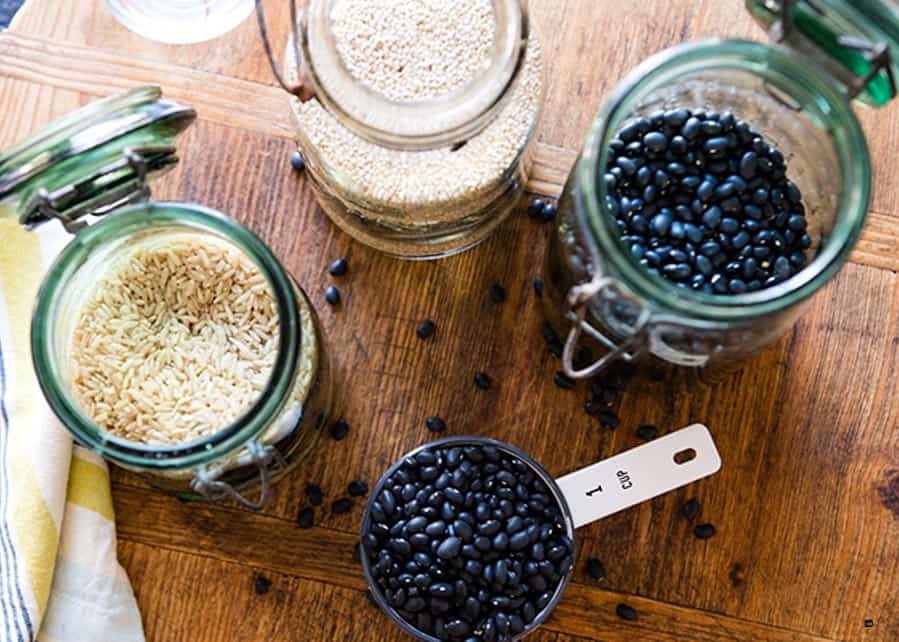
Many people say their biggest hang up to eating more plants is that they’re afraid they won’t get enough protein. Did you know that every single plant food contains protein?
While they might not all equal that of a ribeye, plants are loaded with protein. Plant-based protein sources are abundant, and I can’t wait to share my fav plant protein sources as well as how to make filling meals using just plants.
Table of Contents
When I started Simple Green Smoothies, I was in it for one thing: adding 1 healthy habit into my day. Once I got hooked on smoothies though, I started craving real food throughout the day. This led me to create 21-Day Cleanse that are 100% plant-based and full of incredibly delicious recipes. I learned the incredible power of plants, and can’t wait to share that with you too!
Harnessing the Power of Plant Protein
Daily protein intake varies from person to person. It also depends on how active you are, and what other dietary concerns you may have. A simple way to determine how much protein you need daily is to multiply your weight (in lbs) by 0.36. That total is the # of grams of protein you need per day.
So a 150 lb person should consume at least 54 grams of protein per day if they live a sedentary lifestyle. While scientists are def at odds on how much protein is the right amount, they all seem to agree that more protein is better than less, and protein from whole food sources is incredibly important.
What Plant-Based Actually Means
To be clear, I’m not vegan. I focus on eating as many plants a day as I can, and getting my fuel from whole food sources whenever possible. My family eats meat and a LOT of fruits + vegetables too. I bring my own carrots to grill and put on a bun during a BBQ and enjoy a hamburger with blue cheese after a morning of paddle boarding down the river.
Living a plant-based lifestyle means choosing to pack plants into my day, and focusing on eating whole food plant-based recipes. This isn’t a diet, it’s just living my best life.
To help me incorporate more plants into my day, I created a meal planner so I don’t have to come up with recipes on the fly. I wanna help you easily get more protein, fat, vitamins, minerals and more from plant protein sources, too.
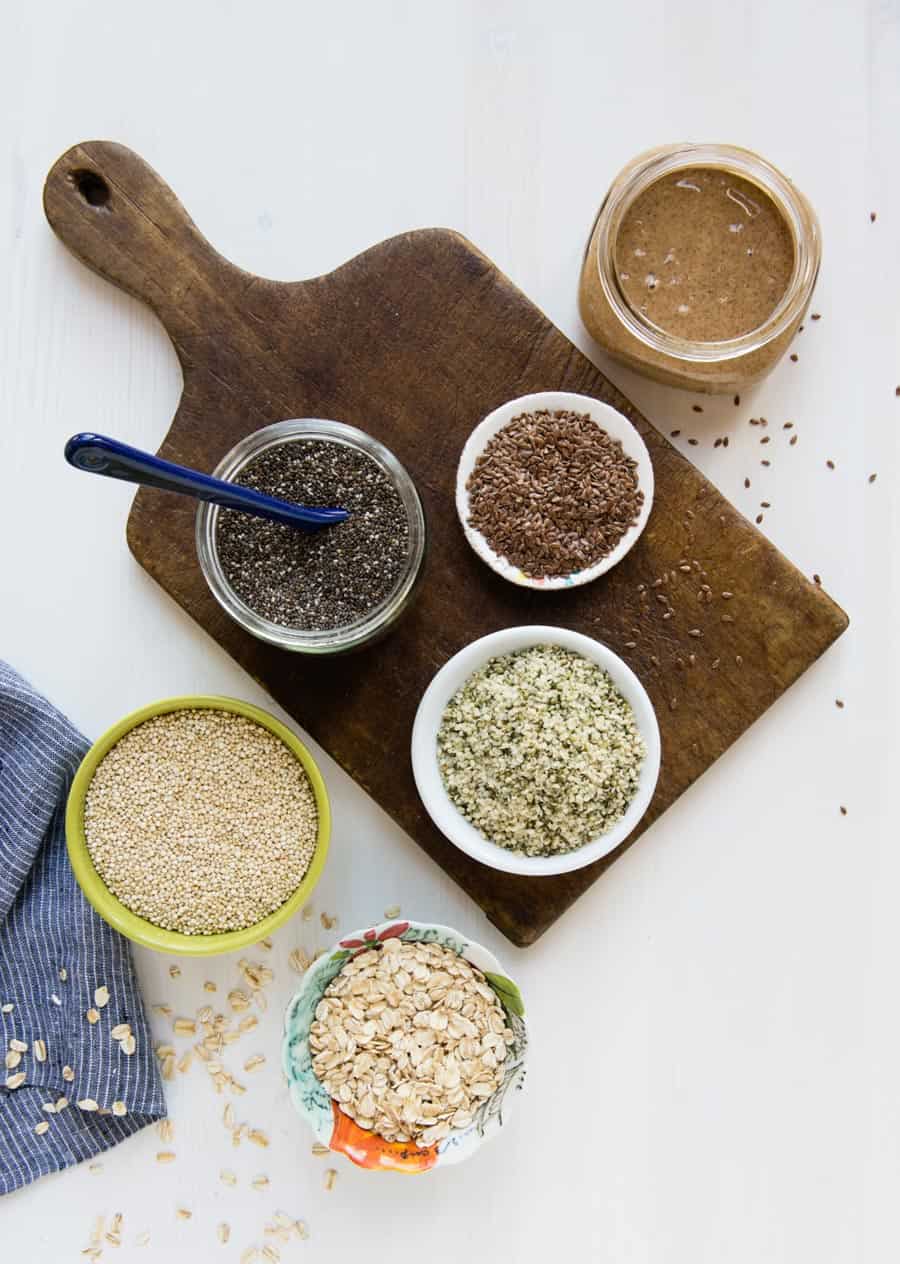
Plant-Based Protein Sources
Some of the best sources of protein available to us are members of the plant kingdom. The chart below shows you how many grams of protein you get in 1 serving of each:
Beans and legumes
- chickpeas / garbanzo beans, cooked (1/2 cup): 6 grams protein
- black beans, cooked (1/2 cup): 7.6 grams protein
- pinto beans, cooked (1/2 cup): 6 grams protein
- kidney beans, cooked (1/2 cup): 6.5 grams protein
- lima beans, cooked (1/2 cup): 7.3 grams protein
- lentils, cooked (1/2 cup): 9 grams protein
- split peas, cooked (1/2 cup): 8 grams protein
- peanuts or peanut butter (1/4 cup serving or 2 tbsp. peanut butter): 7 grams protein
Organic Soy
- edamame, cooked (1 cup): 18 grams protein
- tofu (3 oz. serving): extra firm – 15 grams protein ; silken – 8 grams protein
- tempeh, cooked (3 oz. serving) : 16 grams protein
- soy milk (1 cup) : 8 grams protein
Leafy greens
- kale, raw (1 cup): 2.9 grams protein
- collards, raw (1 cup): 1.2 grams protein
- spinach, raw (1 cup): 0.9 grams protein
- spinach, cooked (1/2 cup): 3 grams protein
- chard, raw (1 cup): 0.6 grams protein
- bok choy, raw (1 cup): 1.1 grams protein
- Cabbage, raw (1 cup): 0.9 grams protein
- romaine lettuce, raw (1 cup): 0.6 grams protein
Veggies
- broccoli, cooked (1 cup): 5 grams protein
- cauliflower, cooked (1 cup): 2.1 grams
- asparagus, cooked (1 cup): 5 grams protein
- peas, cooked (1 cup): 7.9 grams protein
- mushrooms (1 cup): 3.9 grams protein
- Brussels sprouts, cooked (1/2 cup): 2 grams protein
- artichokes (one): 4.2 grams protein
- potatoes, cooked (1 medium white): 4 grams
- winter squash, cooked (1 cup): 5.1 grams protein
Fruits
- blackberries (1 cup): 2 grams protein
- blueberries (1 cup): 1.1 grams protein
- raspberries (1 cup): 1.5 grams protein
- strawberries (1 cup): 1.1 grams protein
- pomegranate seeds (1 cup): 4.7 grams protein
- oranges (per fruit): 1.3 grams protein
- cherries (1 cup): 1.5 grams protein
- avocado (per fruit): 4 grams protein
- banana (per fruit): 1.3 grams protein
Whole grains and pseudo-grains
- quinoa, cooked (1 cup): 8 grams protein
- buckwheat, cooked (1 cup): 6 grams protein
- amaranth, cooked (1 cup): 9 grams protein
- teff, cooked (1 cup): 10 grams protein
- whole wheat berries, cooked (1/2 cup): 6.5 grams protein
- brown rice, cooked (1 cup): 5 grams protein
- wild rice, cooked (1 cup serving): 7 grams protein
- steel cut oats (1/4 cup dry): 7 grams protein
Seeds
- Hemp hearts (1 ounce): 9 grams protein
- Pumpkin seeds (pepitas) (1 ounce): 8.5 grams protein
- Sunflower seeds (1 ounce): 5.5 grams protein
- Sesame seeds (1 ounce): 4.8 grams protein
- Chia seeds (1 ounce) : 4 grams protein
- Flaxseed, ground (1 tablespoon): 1.2 grams protein
Nuts
- Almonds (1 ounce): 6 grams protein
- pecans (1 ounce): 2.6 grams protein
- walnut (1 ounce): 4.3 grams protein
- hazelnuts (1 ounce): 4.3 grams protein
- Brazil nuts (1 ounce): 4.1 grams protein
- macadamia nuts (1 ounce): 2.2 grams protein
- cashews (1 ounce): 4.3 grams protein
- pistachios (1 ounce): 5.9 grams protein
- coconut, dried (1 ounce): 2 grams protein
More Sources of Protein
- Spirulina (1 tablespoon): 4 grams protein
- Sprouted beans, peas, and lentils (1/2 cup): 4.6 grams protein
- Nutritional yeast (2 tablespoons): 8 grams
- Homemade Protein Powder (4 tablespoons): 10 grams protein
If you’re ready to put these ingredients into meals, then keep reading! I’ve got dozens of recipes to fuel your day as well as fill you up.
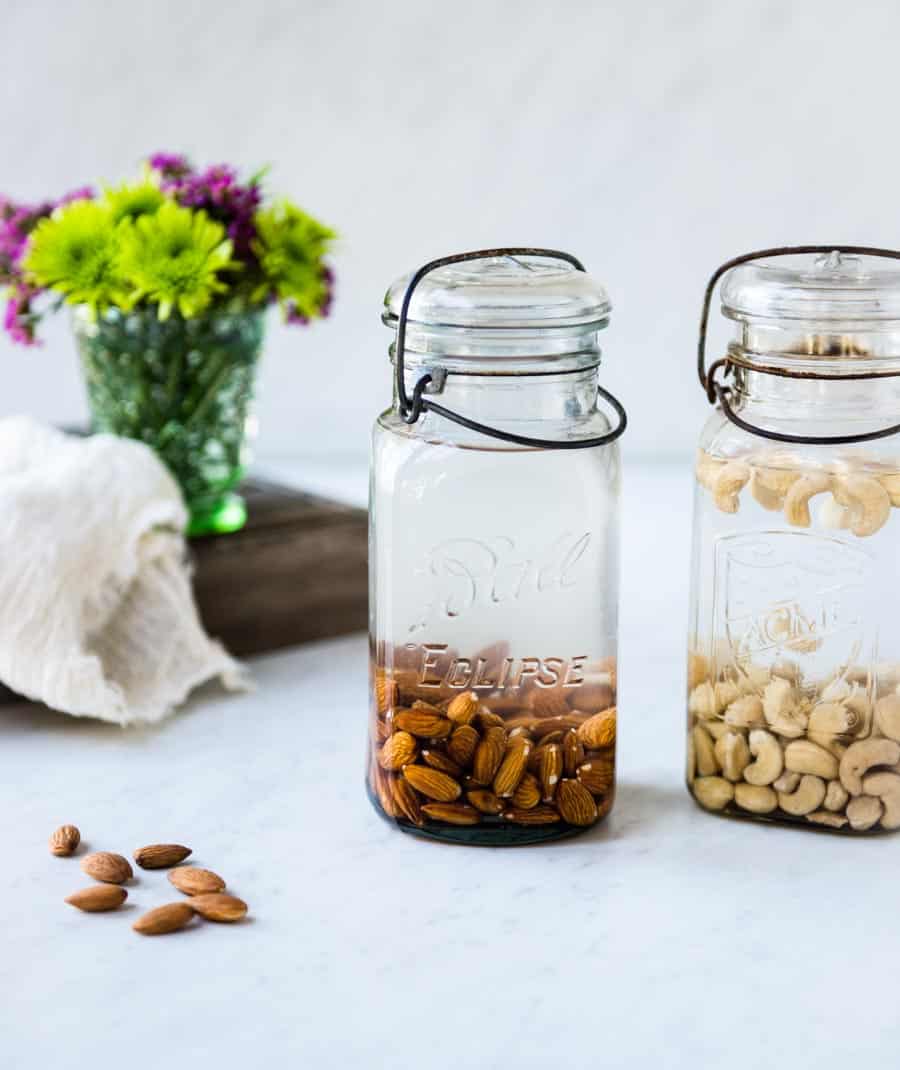
Plant Protein FAQs
Per calorie, many plants have more protein than meat including broccoli and spinach. Since most of us can’t eat a lb of kale like we can a steak, then we mix these powerful plants together in a deliciously filling meal.
Quinoa and soy-based proteins including tempeh, tofu and edamame.
Lentils contain 18 grams of protein per cup and is a powerhouse plant protein.
Powerful Breakfast Recipes
While you can turn any smoothie into a complete meal by adding in a protein powder, the below recipes are packed from the onset:
- Banana Smoothie (18 grams of protein per serving)
- Chocolate Protein Shake (16 grams of protein per serving)
- Vanilla Protein Shake (15 grams of protein per serving)
- Chocolate Peanut Butter Smoothie (13 grams of protein per serving)
- Brain Fuel Smoothie (12 grams of protein per serving)
- Almond Butter Smoothie (11 grams of protein per serving)
- Meal Replacement Smoothie (10 grams of protein per serving)
- Pumpkin Carrot Smoothie (10 grams of protein per serving)
- Cinnamon Date Smoothie (9 grams of protein per serving)
- Caramel Protein Shake (9 grams of protein per serving)
- Workout Recovery Smoothie (9 grams of protein per serving)
Play around with your morning smoothie until you find the right balance of protein, fat, and carbs to help you start the day off right. If you find yourself crashing mid-morning, then you need more protein + healthy fat in your smoothie.
Try adding a tablespoon of chia seeds or hemp hearts to your next smoothie for an easy boost.
Filling Snack Recipes
Snack time is often filled with empty carbs, yet it doesn’t have to be this way! I use snack time as another part of my day where I fuel my body with plant protein + healthy fats. Here’s what I like to snack on:
- Tofu Nuggets (16 grams of protein per serving)
- Garlic Baked Chickpeas (13 grams of protein per serving)
- Pumpkin Chia Pudding (10 grams of protein per serving)
- Homemade Granola Bars (9 grams of protein per serving)
- Cereal Bars (9 grams of protein per serving)
- Protein Bars (9 grams of protein per serving)
- Oven-Roasted Almonds (8 grams of protein per serving)
- Yogurt Parfait (7 grams of protein per serving)
- Avocado Fries (6 grams of protein per serving)
Filling Lunch/Dinner Recipes
Try one of the below recipes for your next Meatless Monday and then let me know in the comments below how it turned out:
- Chickpea Tacos (24 grams of protein per serving)
- BBQ Vegetarian Pizza (23 grams of protein per serving)
- Red Lentil Soup (22 grams of protein per serving)
- Hemp Hearts Veggie Bowl (21 grams of protein per serving)
- Jackfruit Pizza (21 grams of protein per serving)
- Plant-Based Pizza (20 grams of protein per serving)
- Black Bean Burgers (17 grams of protein per serving)
- Thai lettuce wraps (16 grams of protein per serving)
- Sweet Potato Noodles (15 grams of protein per serving)
- Spiralized Taco Salad (14 grams of protein per serving)
Using nuts + seeds as toppings, in sauces, as well as in side dishes help boost your mealtime protein. So know that you’re full on plant protein knowledge, I’d love to hear your thoughts! What are you still questioning about plant-based protein? I’m here to help!
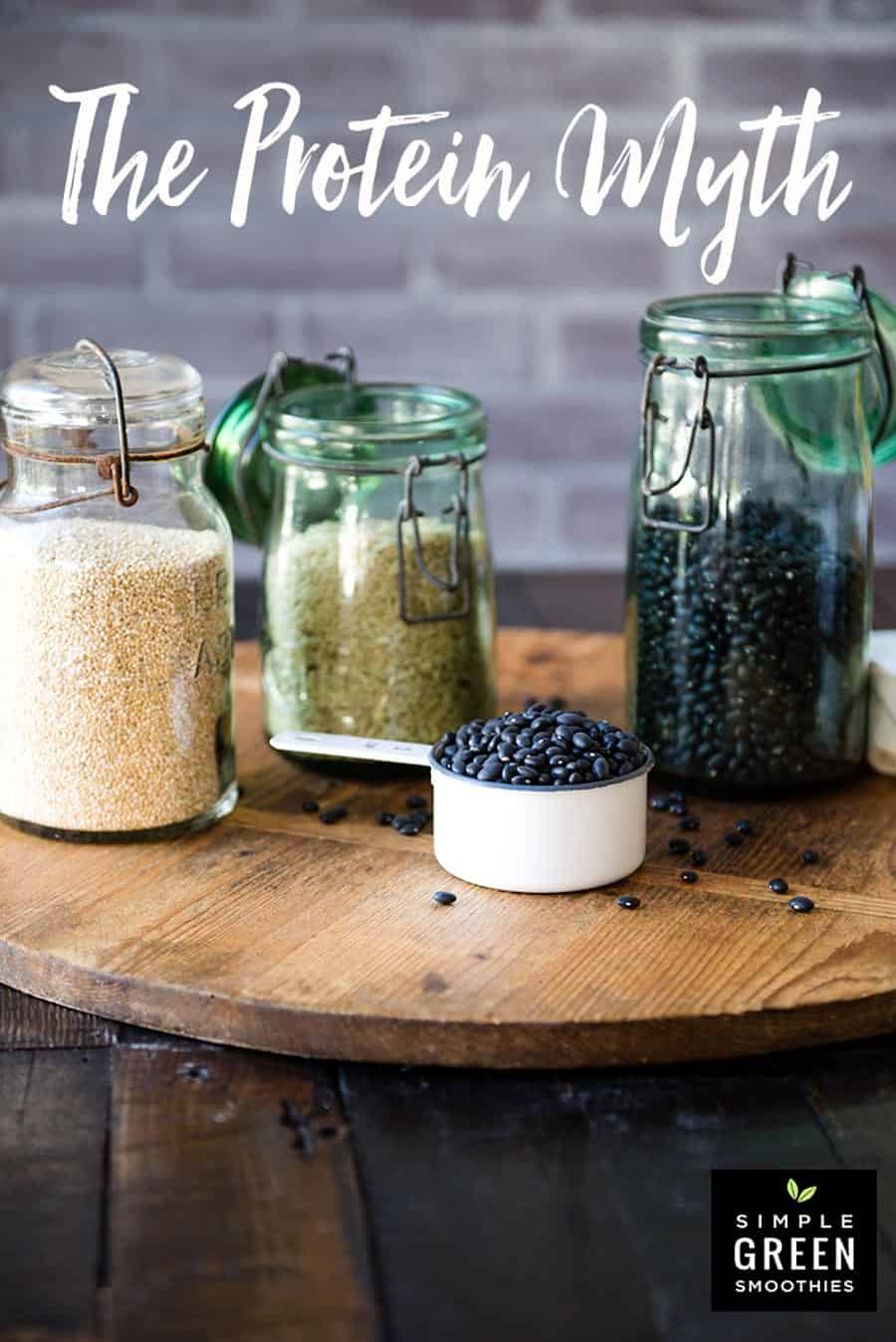

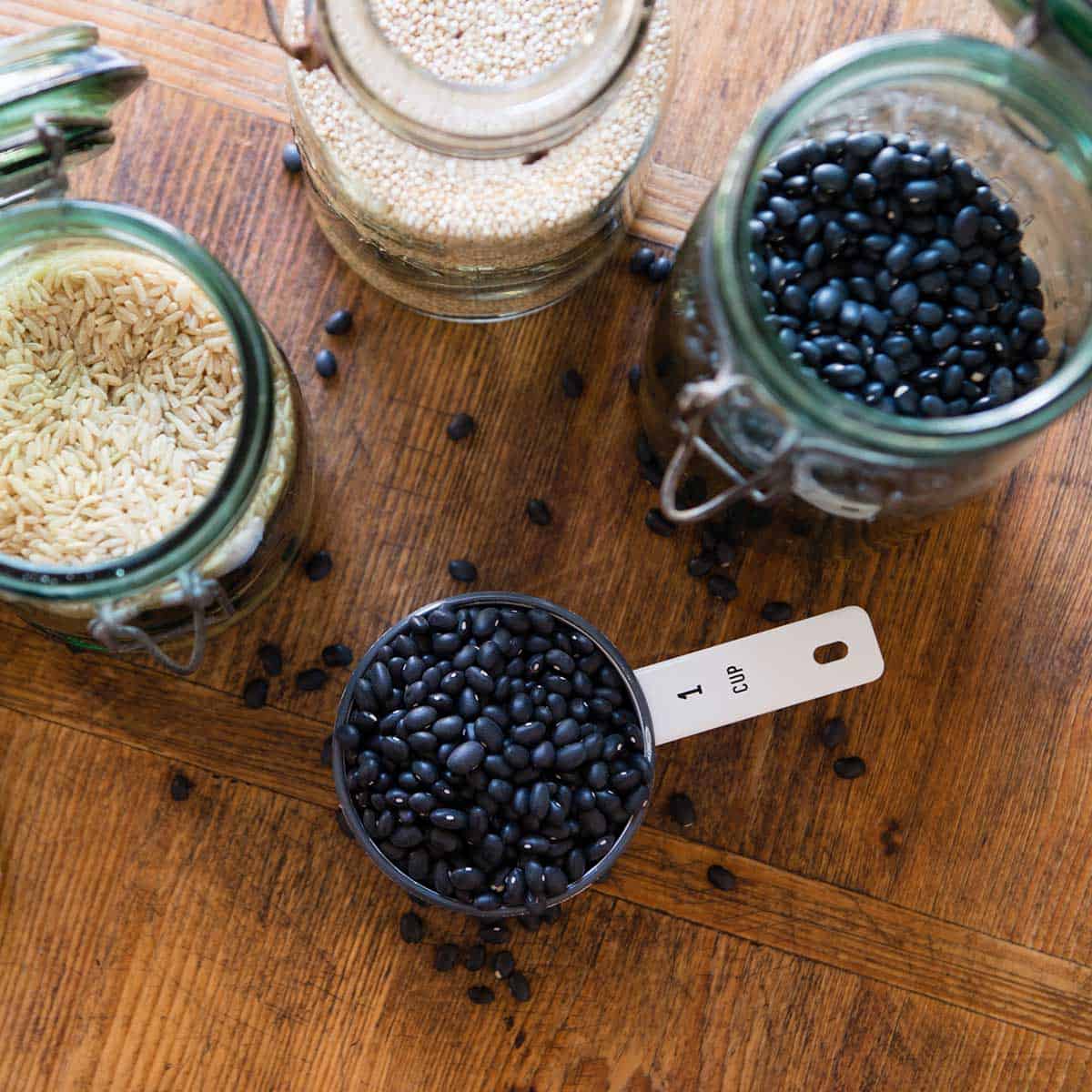
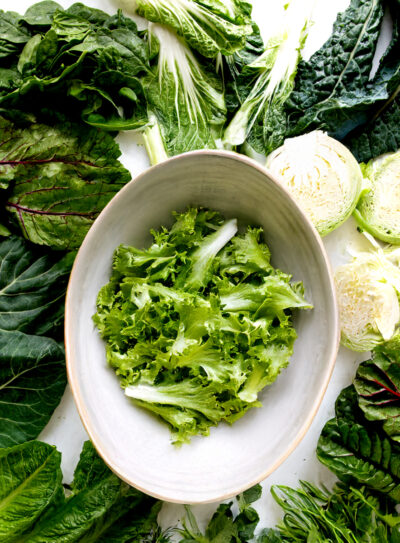
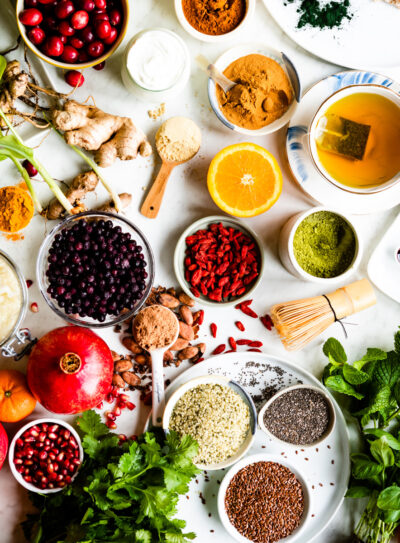

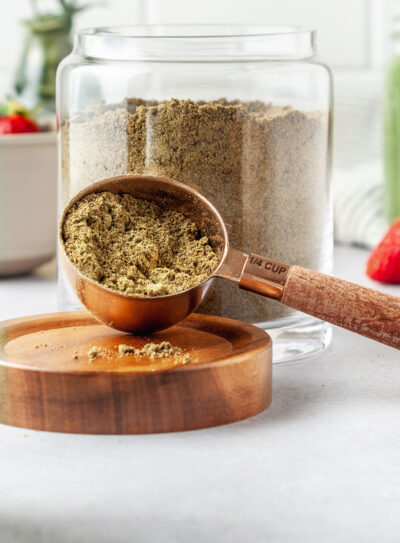
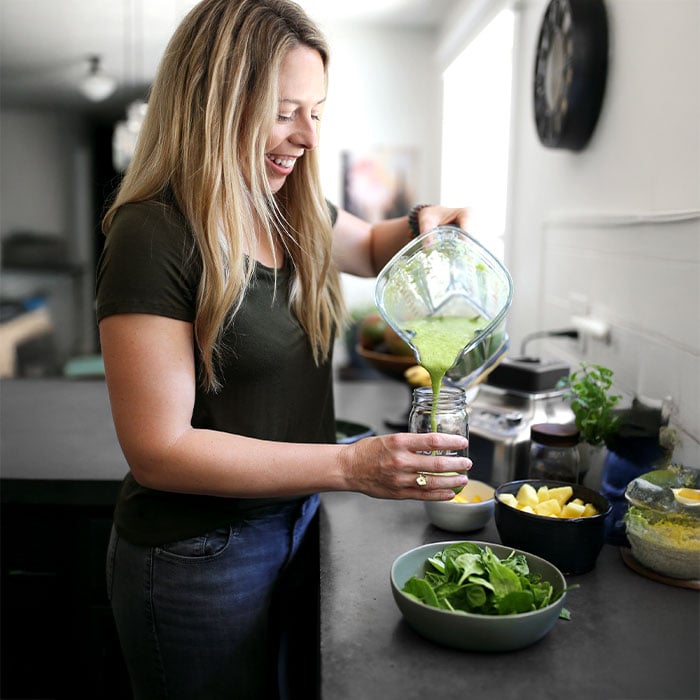









Thank you for this list of plant based proteins. I had made my own list to take shopping and realized I had deleted it from both my iPad and phone. I have just been diagnosed with Cirrhosis, following a few years of fatty liver, and Diabetes for most of my life. I ended up feeling really terrible, ended up in the hospital to be rehydrated, and really was starving my self because I couldn’t look at food. The new doctor, cirrhosis diagnosis, your liver needs protein…you must eat. I had lost 45 lbs and a great amount of muscle mass. I am sixty-four, a widow with two grown sons. My doctor said I wasn’t going to die, but I needed to eat better, and get exercise. I was still young and healthy so transplant is always an option. I don’t drink or smoke. So I got busy! My garden has broccoli, kale, and spinach, and much more…so I go out and graze several times a day. I started feeling better. I dawned my mask and went to the grocery store and picked up some dried lentils, nuts and seeds, Greek yogurt, my energy has returned
somewhat, I am trying to do a few exercises, and my dog doesn’t look at me with such longing. Thank you. Sincerely, Shirley
So glad you are turning things around, Shirley!